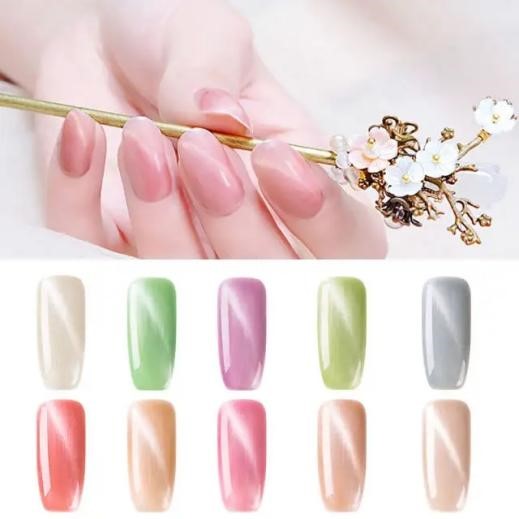-
Procedementos de uso seguro para a impresión 3D de resina UV
1、 Lea atentamente o manual de datos de seguridade. Os provedores de resina UV deben proporcionar as fichas de datos de seguridade (SDS) como documento principal para as operacións de seguridade dos usuarios.As impresoras 3D teñen características de seguridade integradas deseñadas para evitar que os operadores estean expostos a resinas fotosensibles non curadas e á radiación ultravioleta...Le máis -

Introdución básica ao adhesivo UV
Os adhesivos sen sombra tamén se coñecen como adhesivos UV, adhesivos fotosensibles e adhesivos curables UV.Os adhesivos sen sombra refírense a unha clase de adhesivos que deben ser irradiados pola luz ultravioleta para curar.Pódense usar como adhesivos, así como adhesivos para pinturas, revestimentos e tintas.U...Le máis -

Introdución básica á resina UV
A resina UV, tamén coñecida como resina fotosensible, é un oligómero que pode sufrir cambios físicos e químicos rápidos nun tempo relativamente curto despois da exposición á luz, polo que se reticulan e se curan a resina UV é unha resina fotosensible cun peso molecular relativamente baixo. ten grupos reactivos...Le máis -

Habilidades de selección e compra de adhesivo UV
As habilidades de compra de adhesivo UV son as seguintes: 1. Principio de selección do adhesivo UB (1) Considere o tipo, propiedade, tamaño e dureza dos materiais de unión;(2) Considere a forma, a estrutura e as condicións do proceso do material de unión;(3) Considere a carga e a forma (forza de tracción, karité...Le máis -

Características da resina UV
(1) Baixa viscosidade.O curado UV baséase no modelo CAD, e a resina está laminada capa por capa para formar pezas.Despois de completar a primeira capa, é difícil que a resina líquida cubra automaticamente a superficie da resina sólida curada, porque a tensión superficial da resina é maior que ...Le máis -

Análise de problemas comúns na impresión offset UV
Coa aplicación de materiais de impresión non absorbibles como cartón ouro e prata e papel de transferencia con láser en paquetes de cigarros, a tecnoloxía de impresión offset UV tamén se usa cada vez máis na impresión de paquetes de cigarros.Non obstante, o control do proceso de impresión offset UV tamén está relacionado...Le máis -

Vantaxes e inconvenientes do dobre curado en revestimentos UV
O curado dual é unha nova tecnoloxía, que combina as vantaxes dos sistemas de curado térmico e UV típicos.Pode proporcionar unha excelente resistencia aos arañazos e resistencia química dos revestimentos UV, ao tempo que permite o curado da sombra mediante reacción térmica.Esta característica fai que o curado dual sexa un atractivo...Le máis -

Categorías en impresión de resina UV
En China, cada vez son máis as empresas de impresión de xornais que optan por utilizar tecnoloxía e equipos de resina UV para a produción.As súas vantaxes técnicas son as seguintes: secado rápido, alta densidade;Impresión en liña de anuncios;Pode imprimir a portada do libro en papel estucado;Pódese imprimir en papel de revista;É...Le máis -

A resina epoxi baseada na auga ten un forte impulso de desenvolvemento no futuro
A resina epoxi en base á auga pódese dividir en resina aniónica e resina catiónica.A resina aniónica úsase para o revestimento de electrodeposición anódica e a resina catiónica para o revestimento de electrodeposición catódica.A principal característica da resina epoxi base acuosa é o seu excelente rendemento anticorrosivo...Le máis -

Resinas UV fotosensibles comúns no mercado
Resina xeral Ao principio, aínda que os fabricantes de equipos de resina de impresión 3D venderon os seus materiais propietarios, un gran número de fabricantes de resina apareceron en liña coa demanda do mercado.Ao principio, a cor e o rendemento da resina de escritorio eran moi limitados.A esa hora, ...Le máis -

Campos de aplicación e perspectivas de desenvolvemento de materiais de poliuretano elástico
Os elastómeros de poliuretano pertencen aos polímeros de bloque, é dicir, as macromoléculas de poliuretano están compostas por "segmentos brandos" e "segmentos duros" e forman unha estrutura de separación de microfase, na que os segmentos duros (de isocianatos e extensores de cadea) están dispersos no ...Le máis -
Previsión das perspectivas de desenvolvemento da resina de curado UV en 2023
A resina curable UV é un líquido transparente de cor verde claro, que non necesita ser revestido con axente de curado e acelerador na superficie.Despois de ser revestido con película, pódese curar completamente despois de ser colocado no tubo da lámpada UV e exposto á luz UV durante 3-6 minutos.Alta dureza despois do curin...Le máis















